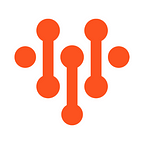COVID-19 & Mental Health: The psychological fallout that comes with the Triple S
Experts warn prolonged isolation during the pandemic may worsen or trigger mental health problems.
In the last week alone, the pace of change of advice about COVID-19 has ramped up. Millions of people across the world have received letters / orders / mandates by the respective governments to stay at home and cease all nonessential activities. Across nations, colleges and offices have gone entirely online, schools and restaurants are closed and nursing homes are barring visitors. Such social-distancing, shielding, and self-isolation (i.e. the Triple S) protocols can slow the spread of COVID-19, the disease caused by the new coronavirus. As global measures continue to become more stringent, mental health experts warn us about the psychological costs that come with losing everyday social connection.
Inferences from 24 Studies during Outbreaks of SARS, H1N1 flu, & Ebola
In fact, Joshua Morganstein, a psychiatrist and disaster mental health expert at the Uniformed Services University in Bethesda, says that “for some people, a lack of social connectedness feels as impactful as not eating”. While empirical evidence on the psychological toll of social distancing during the COVID-19 pandemic is meagre, one can make sound & predictive inferences from studies on the psychological outcomes of people who were quarantined during outbreaks of SARS, H1N1 flu, Ebola and other infectious diseases since the early 2000s.
Of the 24 studies that exist from that time, almost all conclude that “quarantined individuals experienced both short- and long-term mental health problems, including stress, insomnia, emotional exhaustion and substance abuse”. For instance, one study compared quarantined versus non-quarantined individuals during an equine influenza outbreak. Of 2,760 quarantined people, “34 percent reported high levels of psychological distress, which can indicate mental health problems such as anxiety and depression, during the outbreak compared with 12 percent of non-quarantined individuals.
A Few Tips on How to Cope in these Uncertain Times
Most definitely, being isolated from other people can be really hard on our mental health; with the emerging social-distancing and self-quarantining protocols, the psychological impact is expected to exacerbate. Thankfully, we live in an ever-connected, technology-driven world that offers multiple avenues to mitigate any negative affect we may be experiencing during this time. For instance:
- Even though we are socially distancing, we can still connect with friends and family by phone, text, or with other virtual tools. This is a great time to reach out to someone you’ve been meaning to reconnect with.
- If you find yourself constantly checking the news and social media for updates on COVID-19, give yourself a “Worry Window” — 30 minutes at the beginning and end of each day to catch up on the news. You can stay informed without letting it take over your whole day.
- Make sure you’re getting your information from reliable sources, and do extra research if you’re not sure. Knowledge is power, but only if it’s true! There are some reliable, scientifically backed sources that you can refer to:
1- World Health Organization
2- Centre for Disease Control
3- The UK’s National Health Service (NHS)
4- Medline Plus
5- The New York Times (provides a helpful daily briefing)
- Keep to some kind of a daily schedule / structure — it will definitely help mitigate the feeling of a loss-of-control. Try to go to bed and wake up around the same time, and make sure to include healthy food, exercise, talking to friends, and time outside each day!
- It’s never been easier to have a community from inside your home! Instagram, Houseparty, TikTok, Facebook, Zoom — build your own online community, and take this chance to reconnect with old friends in fun ways!
- If you’re really struggling, reach out for mental health support. You don’t have to handle this alone!
